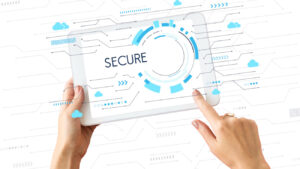The population, worldwide, is aging quickly observed Bahaa Abdul Hadi. The population which is aging on a rapid basis is putting a visible strain on healthcare systems. It also raises concerns regarding the ability of senior adults to live in an independent way.
Wearable biometrics is something that is promising in the field of technology. It has the potential to aid older adults. Wearable biometrics constitute devices that can gather a range of data and information about a person’s health. This includes blood pressure, heart rate, temperature, and level of activity. Such data is used to monitor changes in health and also to identify health risks. In case of any emergency, wearable biometrics can convey alerts/warnings to family members and caregivers.
Clear Benefits
There are several advantages to using wearable biometrics for the care of the elderly. First, wearable devices provide constant monitoring of a person’s health. What this means is that health issues can be detected early, and they can get treated in a timely fashion. In more benefits, wearable devices help decrease the requirement for care visits at home, saving caregivers effort and time.
The quality of life for seniors is also improved as health problems can be dealt with early before they become more serious. Seniors find themselves to be independent while monitoring their health via wearables. For aging adults, wearable biometrics has another perk. This is the interaction with friends and family that such devices allow. This can certainly help to lessen loneliness and isolation, common issues among aging adults.
Overcoming Challenges
Several challenges come with wearable biometrics for the elderly. The single most prominent of these is the expense factor. Wearable biometric devices may prove to be costly, and this poses a hurdle for many older adults. Additionally, such devices require charging on a regular basis.
This could be seen as a hassle for aging adults, some of whom may have difficulty remembering to charge devices in the first place. Ultimately, there is also the concern of privacy. These are devices that are technologically advanced and collect information about the wearer. Personal data may be stored in devices. It is important to note that such sensitive medical data is safeguarded.
In spite of challenges, wearable biometrics is a valuable tool in the care and management of health for aging adults. The pros far outweigh the cons as this is a device that keeps poor health at bay with its potential to detect early warning signs for corrective medical attention and action.
The blog has been authored by Bahaa Abdul Hadi and has been published by the editorial board of Identity Herald. For more information, please visit www.identityherald.com




